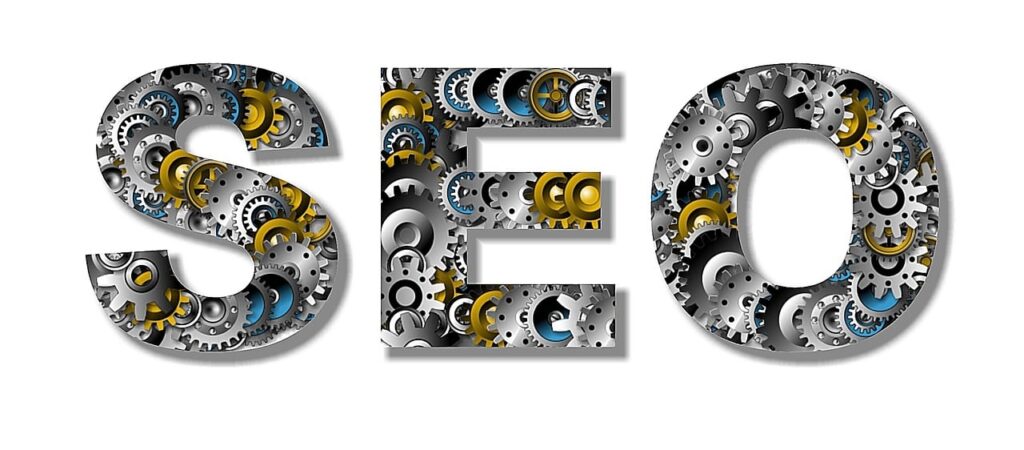So you’ve heard the terms “on-page SEO” and “off-page SEO” thrown around, but you’re not quite sure what they mean. Fear not, because today we’re going to demystify the differences between these two essential elements of search engine optimization. On-page SEO refers to optimizing your website’s content and structure to improve its visibility on search engine results pages. On the other hand, off-page SEO focuses on external factors like backlinks and social media mentions that can positively impact your website’s rankings. By understanding the distinction between the two, you’ll be equipped with the knowledge to effectively enhance your website’s online presence and drive organic traffic.
How to Make Money with YouTube
Create an empire of automated video websites for multiple streams of income
On-page SEO
Definition
On-page SEO refers to the practice of optimizing individual web pages in order to rank higher and earn more relevant organic traffic from search engines. It involves optimizing various elements on a webpage such as the title tags, meta descriptions, header tags, URL structure, keyword optimization, content quality, and internal linking.
Importance
On-page SEO is crucial for the success of a website as it helps search engines understand the content and relevance of a webpage. By optimizing on-page factors, you increase the chances of ranking higher in search engine results pages (SERPs), gaining more visibility, and attracting targeted organic traffic. It also enhances user experience by providing valuable and relevant information to visitors.
Key Factors
There are several key factors to consider when it comes to on-page SEO:
Title Tags
Title tags are HTML elements that define the title of a webpage. They play a vital role in on-page optimization as they inform both search engines and users about the content of the page. It is important to include relevant keywords in the title tag and keep it concise, ideally within 50-60 characters.
Meta Descriptions
Meta descriptions are snippets of text that summarize the content of a webpage. While search engines typically don’t use them as a ranking factor, they serve as a persuasive tool to entice users to click on your webpage. Including relevant keywords and providing concise and compelling descriptions can improve your click-through rate.
Header Tags
Header tags, also known as H1, H2, H3 tags, etc., are HTML elements used to structure and label headings and subheadings on a webpage. They help organize the content and provide a hierarchical structure. Utilizing header tags appropriately, including relevant keywords, can improve the readability and SEO of your webpage.
URL Structure
Optimizing the URL structure of your webpages is crucial for both search engines and users. A clean, descriptive, and easy-to-read URL can improve click-through rates and enhance the overall user experience. Including relevant keywords in the URL can also contribute to the SEO efforts.
Keyword Optimization
Keyword optimization involves researching and selecting relevant keywords that users are likely to search for. Incorporating these keywords naturally into the content, title tags, meta descriptions, headers, and URLs helps search engines understand the topic of the webpage and rank it accordingly.
Content Quality and Relevance
Creating high-quality, useful, and relevant content is a fundamental aspect of on-page SEO. Search engines value content that provides value to users, answers their queries, and solves their problems. By focusing on creating original and engaging content, you are more likely to rank higher and attract organic traffic.
Internal Linking
Internal linking is the practice of linking from one page on your website to another page on the same website. It helps search engines crawl and discover more pages on your site while establishing relationships between different pages. Proper internal linking improves the user experience and can distribute link equity throughout your website.

Off-page SEO
Definition
Off-page SEO refers to activities performed outside of a website to improve its ranking in search engine results pages (SERPs). It involves building the online reputation and visibility of a website through various external factors such as backlinks, social media engagement, online reputation management, guest blogging, influencer marketing, brand mentions, and community engagement.
Importance
Off-page SEO plays a crucial role in determining the overall authority, credibility, and visibility of a website. It helps search engines understand the popularity and relevance of a website through external signals. By actively engaging in off-page optimization techniques, you can improve your website’s trustworthiness, enhance its online reputation, attract high-quality backlinks, and ultimately increase organic traffic.
Key Factors
Several key factors contribute to off-page SEO success:
Backlinks
Backlinks are incoming links from external websites to your website. They are considered a vote of confidence and trustworthiness. High-quality backlinks from authoritative and relevant websites can significantly impact your website’s ranking. Building a diverse backlink profile through outreach, content creation, and networking is essential for off-page SEO.
Social Media Engagement
Social media engagement refers to the level of interaction and activity on social media platforms involving your website or brand. Active participation, such as sharing content, responding to comments, and fostering community engagement, can increase brand visibility, attract more traffic, and enhance your website’s authority.
Online Reputation Management
Online reputation management involves monitoring and influencing your website’s reputation and public perception online. Maintaining a positive online reputation helps establish trust with users and search engines. By responding to reviews, addressing customer feedback, and showcasing positive experiences, you can build a strong online reputation and improve search engine rankings.
Guest Blogging
Guest blogging is the practice of writing and publishing articles on external websites as a guest author. It allows you to reach a new audience, build relationships with other website owners, and earn valuable backlinks. By providing quality content and contributing to reputable websites, you can enhance your website’s visibility and authority.
Influencer Marketing
Influencer marketing involves collaborating with influential individuals or figures within your industry to promote your brand or content. By leveraging their existing audience and credibility, you can amplify your brand visibility, build trust, and reach a wider audience. Influencer endorsements and collaborations can positively impact your off-page SEO efforts.
Brand Mentions
Brand mentions are instances where your brand or website is mentioned on external platforms, such as social media, forums, or news outlets. Even without direct links, brand mentions contribute to your website’s authority and online reputation. Monitoring and actively promoting positive brand mentions can boost your off-page SEO.
Community Engagement
Engaging with online communities and forums related to your industry can significantly benefit your off-page SEO efforts. By actively participating, answering questions, and providing valuable insights, you can establish yourself as an authority in your niche. This, in turn, can lead to increased brand visibility, trust, and potential backlinks.
In conclusion, both on-page and off-page SEO are vital components of a successful website optimization strategy. On-page SEO focuses on optimizing individual web pages through various factors such as title tags, meta descriptions, header tags, URL structure, keyword optimization, content quality, and internal linking. Off-page SEO, on the other hand, involves activities performed outside of a website, including building backlinks, social media engagement, online reputation management, guest blogging, influencer marketing, brand mentions, and community engagement. By effectively implementing both on-page and off-page SEO techniques, you can improve your website’s ranking, attract targeted organic traffic, and establish a stronger online presence.







